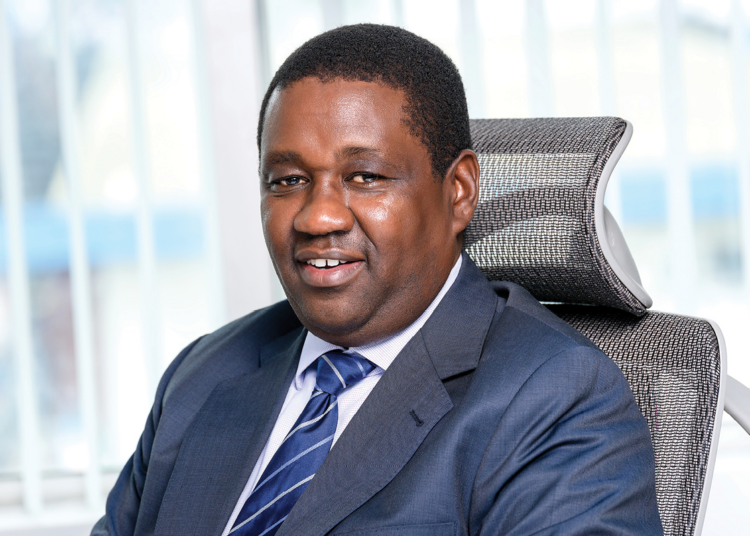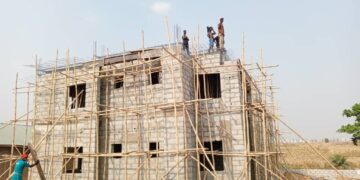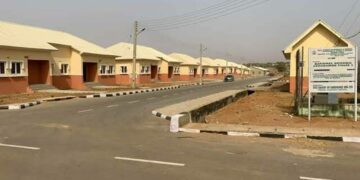Of the challenges that beset your industry, which poses the greatest threat to your operations and how are you dealing with it?
We have two very big challenges from a manufacturing point of view. The first is the forex shortage. Any manufacturer in Nigeria even with the best backward integration strategies will need substantial foreign exchange.
We do not produce the required machinery locally neither do we produce all raw materials locally; so there will always be something that needs to be imported. The low amount of forex available in the market is enough to shut down many businesses as we are already seeing.
The second threat is insecurity within our dairy development host communities. In 2021, we had a big issue when there was insecurity around the Southwest and some of our milk collection centres were vandalised as a result of clashes between the pastoralists and local people. We had to shut down some of our milk collection centres. Our milk collection in the first quarter of 2023 is 42 per cent above last year’s figure for same period because there is better security this year.
To what extent have you developed local content for your products?
From a milk production point of view, Nigeria has a hot, humid environment which typically is very good for beef cattle and that is why you see a lot of the Fulani cows doing very well. To grow high milk-yielding cows, you have to put in extra effort and this is what we have been doing for many years.
The Yoghurt factories are running on local milk, so we can say we have brands that are 100 per cent Nigerian in our portfolio. However, to be able to meet the total dairy nutrition demands in a country as large as Nigeria, the local milk currently available is still very much inadequate. So, in my opinion, the model that the country will run will still have a reasonable mix of importation of some of the raw materials, while local content is developed over a period of time.
What sustainability steps are being taken to improve local sourcing of milk while promoting animal welfare, protecting the environment and promoting conservation within Nigeria?
The cattle population in Nigeria is about 20.7 million and they are well scattered across the country, which means that from a density point of view, it is not a major threat to the environment.
The cattle numbers are not as high as what is seen in other countries like The Netherlands that are small yet have lots of animals. Having said that, our dairy development initiative is currently ongoing in Oyo, Osun, Ogun, Ondo, Kwara and in the north. In these locations, we are working with about 12,000 farmers. Most of them are pastoralists who have cows that roam about.
This means that in terms of carbon footprints, there are no major issues. The issues to focus on are resources like water, afforestation, grass and pasture use, and the like.
What impact do your dairy activities have on employment in your host communities?
We are doing all the right things if you look at it from the employment perspective. Among the 12,000 farmers we work with, there are about 1,500 Fulani women, who basically have been at home not fully engaged.
Today, they are productive and have an occupation for which they are being paid regularly and their families are much more prosperous than before; the farmers, their wives and children. In some cases, their mud huts have been rebuilt to brick houses and their children now go to school, which they could not afford before.
We have 29 milk collection centres (MCCs) in the country. These are physical locations with an average of five people who are directly employed. The farmers producing the milk are different from the riders who deliver the milk to these MCCs. Then we have the extension officers and milk truck drivers.
What type of strategy in terms of cattle breeding is best for Nigeria?
Ranching; again, the definition of ranching in this country is a bit misunderstood. Ranching involves using huge portions of farmlands to rear many cows typically for beef. Smallholder or large-scale dairy farms are normally also large farms but you find that the cows are in a confined location.
In ranches, the cows roam. In dairy production, the cows however are in large numbers similar to what you see in the middle east, for example, the Almarai farms. In Pakistan, we have a farm that has about 7,000 cows in one location, in very long dormitory-like structures. That is a large-scale dairy farm. To answer the question, we believe that it will be a combination of all of them but the most effective in changing the country’s dairy development will be settled smallholder dairy farms.
How much of a Nigerian company is FrieslandCampina WAMCO, especially now that you have marked 50 years of corporate existence?
FrieslandCampina WAMCO is truly a Nigerian business. First of all, WAMCO, which is an acronym for West African Milk Company was registered in 1973 as a corporate entity. Then it became Friesland Foods WAMCO Nigeria Plc in 2005 and FrieslandCampina WAMCO Nigeria Plc in 2009.
Our flagship brand, Peak Milk, has been in the Nigerian market, nourishing our teeming consumers since 1954. It first came into Nigeria through an import model and I think so far, almost every Nigerian I have interacted with has been nourished by Peak Milk at some stage of their lives.





